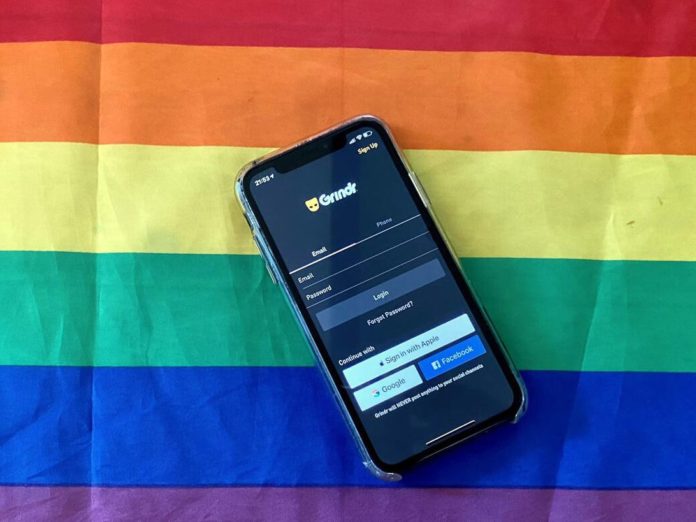
It’s easy to forget that even in an age of marriage equality, a gay Cabinet secretary and a bazillion seasons of RuPaul’s Drag Race, LGBTQ people still need safe spaces. All too often, we’re reminded why that’s the case. Maybe it’s a singer using homophobic language at a concert, or something far worse, like a violent mob attacking a pride parade or a gay person getting bashed on the street. Or perhaps it’s something in between, like a reporter breaching the privacy of users on a dating app to find gay Olympic athletes for a story. Though it can feel like we’re everywhere, sometimes we still need somewhere secure to go.
For decades, gay bars have served as one of those safe places. They aren’t just about getting drunk or hooking up, they’re refuges from harassment and discrimination, places where you can meet people like you and know you aren’t alone. Tragically, even that security can be destroyed, as in 2016 when a terrorist killed 49 people at a gay bar in Orlando, Florida. Still, there’s a good reason gay bars and all they offer, from trivia night to drag shows, remain a center of LGBTQ life.
But as meeting others has largely shifted online for gay and straight alike, establishing safe places on the internet and controlling access to them is much harder to do. At their best, online spaces allow you to interact with people both next door and around the world, and for people who have to hide in the closet at home, they can be a more invigorating experience than the newspaper personal ads and gay phone chat lines of the analog era could deliver. That’s only good, though, until you remember that true online anonymity doesn’t exist, even when your pseudonym is supposed to be protected by an app’s layers of security.
Consider Grindr, the social networking app for gay, bi, trans and queer people. With its worldwide reach and immense user base (more than 3 million active users), it’s one of the most popular ways for gay people to date and (yes) hook up. But it also can be a place to be reminded that other gay people simply exist and an opportunity to connect and chat when it feels like you’re the only gay in a hostile homophobic village. And that’s precisely why Grindr needs to secure the app for its vulnerable users. It’s not just about protecting privacy, it’s also about protecting livelihoods in places like Iran, Uganda and Malaysia where LGBTQ sex is illegal and punishable by imprisonment or even death.
Grindr, of course, bears the burden of maintaining user privacy. It’s a pledge it hasn’t always honored (last year, a study found that Grindr and nine other apps were sharing people’s personal information with dozens of digital marketing and ad tech companies without consumers being aware). But anyone using the app shares the responsibility to guard users’ privacy, and I just wish everyone believed that.
Olympics outrage
Just this week, Insider reported that TikTok and Twitter users were tapping the app to find Grindr profiles located in Tokyo’s Olympic Village and then post about the content they found. Why? That’s not clear. Maybe it was just to see if they were there. Whatever the reason, it’s still gross. According to the report, one TikTok video revealed “over 30 full users’ faces, with several profiles noting they were there for the Olympics.” One Grindr user’s profile, which showed his face, revealed that “he was from a country known for anti-LGBTQ politics.” Grindr quickly condemned the postings.
Such behavior is reckless and incredibly dangerous, potentially exposing LGBTQ athletes to potential abuse (as Russian state TV has done to LGBTQ Olympic athletes) or violence. In many Western societies it’s easy to forget that in far too many countries in Africa, Asia, the Middle East and even Eastern Europe, remaining closeted is the only choice some people have. Not everyone can be safely out like US soccer player Megan Rapinoe or British diver Tom Daley. Outing them, even by accident, is reprehensible.
Though some may argue that in such places opening a Grindr account is just asking for trouble, these app users may have no option for meeting people where they live — no gay bar and no gay social or advocacy groups, just a terrible, stifling closet. Feeling alone or thinking you’re a deviant because of harmful cultural messages and rhetoric that have surrounded you your entire life eats you from the inside. You do anything to stay sane, to stay whole, to stay healthy.
To Grindr’s credit, a rep told Insider that the tweets and TikTok videos breached the app’s terms of service that prohibit its users from using Grindr and publicly displaying any content from other users. The rep also demanded that the posts be removed, a step TikTok and Twitter took. Good for them. When I asked Grindr for further comment, a spokesman sent this statement.
“These individuals are in breach of Grindr’s terms and conditions of service which prohibit them from publicly displaying, publishing or otherwise distributing any content or information that are part of the Grindr services. Out of respect for our users’ privacy, and out of respect for the contractual commitments these individuals made, Grindr demands that these individuals remove their social media posts that include images from the Grindr platform.”
Hypocrites in the closet
This wasn’t the first time a person with a Grindr account accessed the app for less-than-honorable purposes. During the 2016 Olympics in Rio de Janeiro, a (straight) Daily Beast reporter used not just Grindr but also Tinder, Bumble and Jack’d to see if athletes in the Olympic Village were using dating apps. Though he didn’t outright name any of the Grindr-using athletes he chatted with, the original version of the story included enough details about them that anyone familiar with Google could track them down. Understandably, the story sparked instant outrage, so much so that The Daily Beast removed it and apologized for its publication. The reporter apologized as well.
I’ve always thought outing should be reserved for the powerful closeted people who actively oppose LGBTQ rights and interests while enjoying the privileges the LGBTQ movement brought them — like a society where other people can be freely out to build a thriving gay culture. Think of the closeted politician voting against civil rights even as he drops into a gay bar to flirt with patrons or cruises Grindr to find a date. Go ahead, expose those hypocrites who are doing real harm to LGBTQ people, but leave the closeted athletes alone. Their lives may depend on it.








